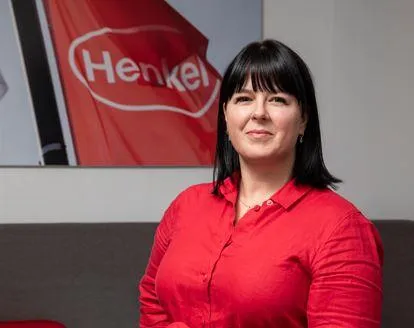From local insight to global shift: How collaboration and consumer-driven innovation are redefining FMCG strategy

For Henkel in South Africa, what started as a local consumer workaround for wigs is now shaping global product development. For me, it has been a powerful reminder that leadership in FMCG is not about control, it is about listening, adapting, and collaborating across every boundary.
Image: Photo by Keenan Constance on Unsplash.
In the FMCG industry, agility is everything. Markets move quickly, consumer expectations evolve daily, and global strategies often collide with local realities.
Over the years, I’ve learned that the ability to turn a global ambition into a local success story depends on two forces: collaboration as a superpower and listening to consumers as true innovators.
Both have the power not only to unlock growth but to fundamentally reshape global portfolios.
Consumers as innovators
One of the most powerful lessons I’ve experienced in my role as market manager didn’t come from a research report or a strategy session but it came directly from our consumers. got2b GLUED, originally a European styling brand, was adopted by South African women as an ultra-strong hold for lace wigs and weaves.
Its extreme hold, designed for gym-proof styles, became the perfect solution for a very real local need: keeping wigs secure in place against wind, movement, or daily wear. Women in salons specialising in diverse hair textures were asking for it by name. Parallel imports surged, salons sourced it directly from overseas, and stocks were selling out at staggering prices online.
When we officially launched got2b locally, it went from zero to one of our biggest revenue drivers within 18 months, it was entirely consumer-led.
This experience reinforced a truth I now hold firmly: real innovation doesn’t always happen in boardrooms. Sometimes, the most valuable ideas emerge from how consumers themselves reimagine your products.
Unlocking diversity as growth
The got2b journey also highlighted an important opportunity in our global portfolio: textured hair. While much of the historical focus had been on straight hair types, curls and coils represent a significant share of the market — not only across Africa, but also in Brazil and among indigenous populations in Australia and New Zealand.
By recognising and embracing this, we’ve been able to broaden our perspective and drive new conversations around innovation that truly reflect the diversity of our consumers.
Through local research, we saw not only different product needs but entirely different usage behaviours. For example, while consumers with straight hair might wash their hair multiple times weekly and use treatments sparingly, textured-hair consumers often wash less frequently but use multiple treatments daily. Oils, hair mayonnaise, cholesterol creams - their routines are built on layering hydration and nourishment.
Understanding this changed the conversation entirely. It is no longer about “launching more treatments” generically; it is about launching the right treatments tailored to specific hair types.
This shift has sparked new Africa-led workstreams within Henkel. The lesson is clear: diversity is not just about inclusion. It is about tailored meaningful innovations. Just as different hair types need different formulas, diverse markets demand tailored strategies.
Collaboration as a superpower
My role at Henkel South Africa is embedded in a regional and global structure, I am the dedicated lead for consumer brands in South Africa.
I cannot possibly execute in silos as I rely on collaboration across every function: Supply chain, finance, controlling, distribution, and marketing.
Weekly check-ins, status trackers, and open dialogue across functions aren’t optional; they are the engine of execution. Without this collaborative web, no launch would move from idea to shelf. For me, collaboration is not a support function, it is the foundation of agility, ensuring that what works in theory at a global level becomes relevant, executable, and impactful in South Africa.
My lessons for FMCG leaders
These experiences have crystallised a few lessons that I believe are relevant well beyond South Africa:
- Collaboration is the key to agility. Even the best strategies will fail without seamless cross-functional execution.
- Consumers are your innovators. Some of the most valuable ideas don’t come from research decks — they come from observing how people use your products in real life.
- Diversity is a growth engine. Blind spots in portfolios are not weaknesses; they are opportunities waiting to be unlocked.
For Henkel in South Africa, what started as a local consumer workaround for wigs is now shaping global product development. For me, it has been a powerful reminder that leadership in FMCG is not about control, it is about listening, adapting, and collaborating across every boundary. I believe the future of FMCG will be defined by the brands that listen deeply, collaborate widely, and embrace diversity as the catalyst for innovation.
Natalie van Heerden, Market Manager, Henkel Consumer Brands South Africa.

Natalie van Heerden, Market Manager, Henkel Consumer Brands South Africa.
Image: Supplied.
BUSINESS REPORT